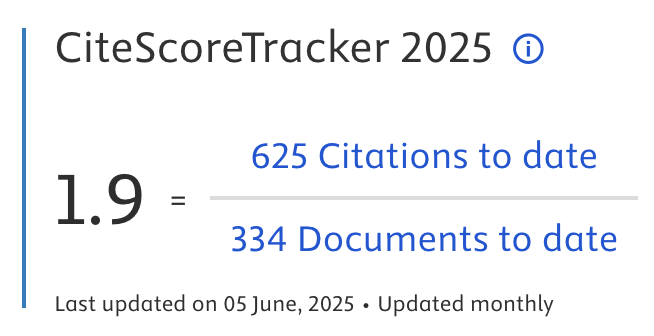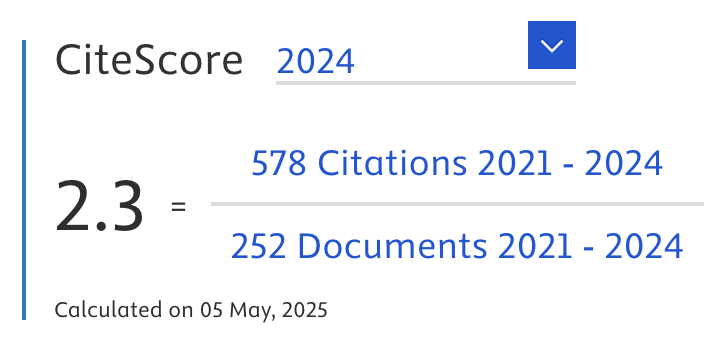Optimized Deep Learning method for Enhanced Medical Diagnostics of Polycystic Ovary Syndrome Detection
Abstract
This paper explores Polycystic Ovary Syndrome (PCOS), a common hormonal disorder caused by elevated androgen levels, which affects women's reproductive health. The primary objective is to enhance early detection and diagnosis of PCOS using advanced machine learning techniques. To achieve this, the study utilizes VGG19 Net, integrated with various machine learning algorithms, to classify ultrasound images of the ovaries. The research involves analyzing ultrasound scans to differentiate between benign and potentially cancerous cysts. The contribution of this study lies in its novel application of VGG19 Net, which achieved an accuracy rate of 96% compared to other techniques: Random Forest (94%), Logistic Regression (91%), Bayesian Classifier (81%), Support Vector Machine (92%), and Artificial Neural Network (90%). The findings indicate that VGG19 Net outperforms traditional methods in precision and accuracy, with a significant improvement in detecting early-stage PCOS. This approach not only provides a clearer diagnostic image but also enables timely intervention, thus addressing the challenge of distinguishing between benign and malignant cysts more effectively. The results underscore the potential of VGG19 Net in revolutionizing PCOS diagnosis through enhanced image classification, offering a valuable tool for medical practitioners.
Article Metrics
Abstract: 233 Viewers PDF: 169 ViewersKeywords
Full Text:
PDFRefbacks
- There are currently no refbacks.

Journal of Applied Data Sciences
| ISSN | : | 2723-6471 (Online) |
| Collaborated with | : | Computer Science and Systems Information Technology, King Abdulaziz University, Kingdom of Saudi Arabia. |
| Publisher | : | Bright Publisher |
| Website | : | http://bright-journal.org/JADS |
| : | taqwa@amikompurwokerto.ac.id (principal contact) | |
| support@bright-journal.org (technical issues) |
 This work is licensed under a Creative Commons Attribution-ShareAlike 4.0
This work is licensed under a Creative Commons Attribution-ShareAlike 4.0





.png)